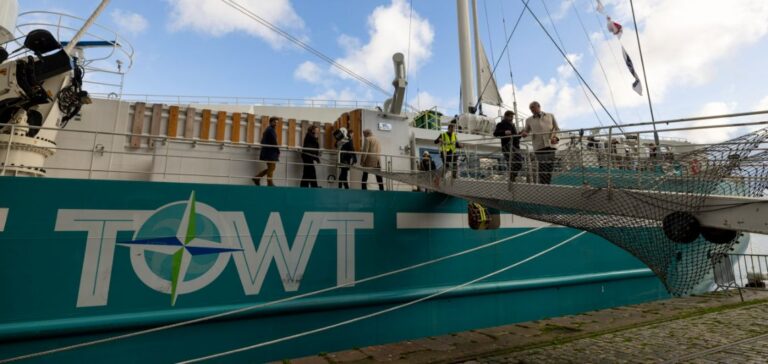Maritime transporter TransOceanic Wind Transport (Towt), headquartered in Le Havre, continues to operate its primary transatlantic trade route to the United States despite new tariff barriers imposed by the US administration. The company has confirmed plans to expand its fleet with six additional sail cargo vessels by the end of 2027, strengthening its presence in a still niche but expanding segment of the logistics market.
Since summer 2024, Towt has operated two wind-powered vessels, Artémis and Anemos, both designed to carry up to 1,090 tonnes of cargo using automated sails with a total surface area of 2,100 m². The company claims to have avoided the emission of 300 tonnes of greenhouse gases during its first year of operations. With two-thirds of its revenue generated on the Le Havre – New York corridor, Towt has seen its business model tested by protectionist measures introduced by Donald Trump.
Adaptability in the face of customs restrictions
The imposition of new tariffs has led Towt to temporarily revise its logistical plans, organising intermediate port calls in French ports such as Brest to expedite loading before the measures took effect. According to Guillaume Le Grand, President and Co-founder of Towt, such flexibility is made possible by the mid-sized nature of the vessels used, which differs significantly from traditional container ships.
The company has also begun diversifying its operations by targeting pharmaceutical transport, a sector not affected by recent US tariffs. New maritime routes are under consideration in the Pacific and the Gulf of Guinea, according to company statements.
Fleet expansion and commercial outlook
Towt plans to introduce three new ships by the end of 2026, increasing its fleet to five units, and reaching eight vessels the following year. These investments aim to meet growing demand from loyal freight customers. The company highlights the stability of its current business relationships despite ongoing geopolitical uncertainties.
Guillaume Le Grand has confirmed the continuation of services to the United States, while underlining the necessity of constant agility in planning cargo flows. The company’s activity now relies equally on the technical performance of its vessels and its strategic adaptability to a changing regulatory landscape.






















